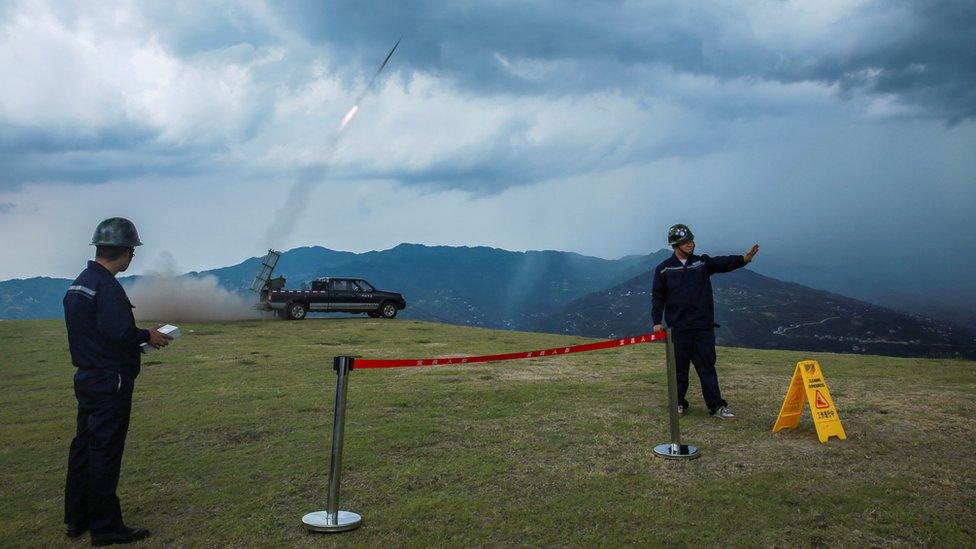What China's worst drought on record looks like
- Published
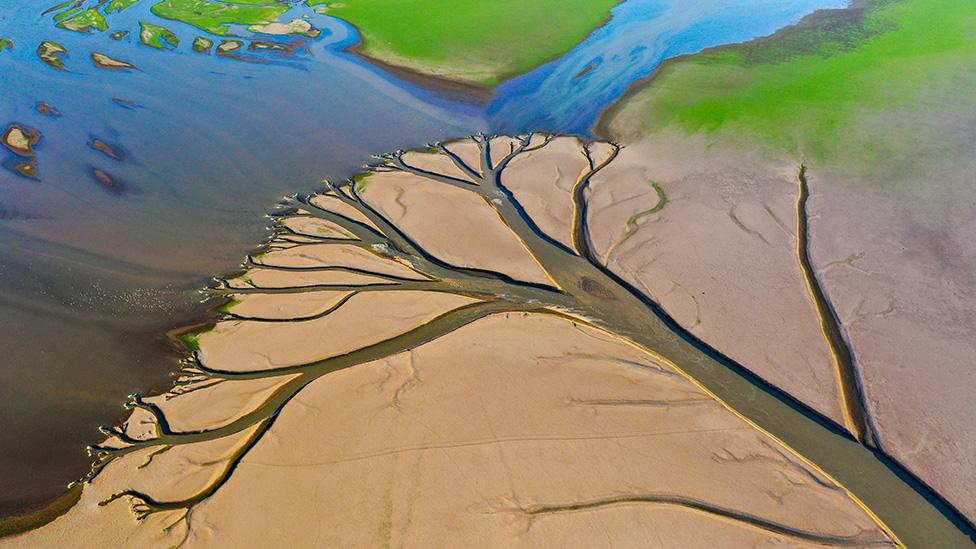
A month-long heatwave and record low rainfall have resulted in an unprecedented drought along the Yangtze, China's longest river.
Lakes and tributaries have receded as a result of the drought, exposing riverbeds and even a 600-year-old Buddhist stone carving and rocks below the famous Guanyin Pavilion, in Wuhan, Hubei province.
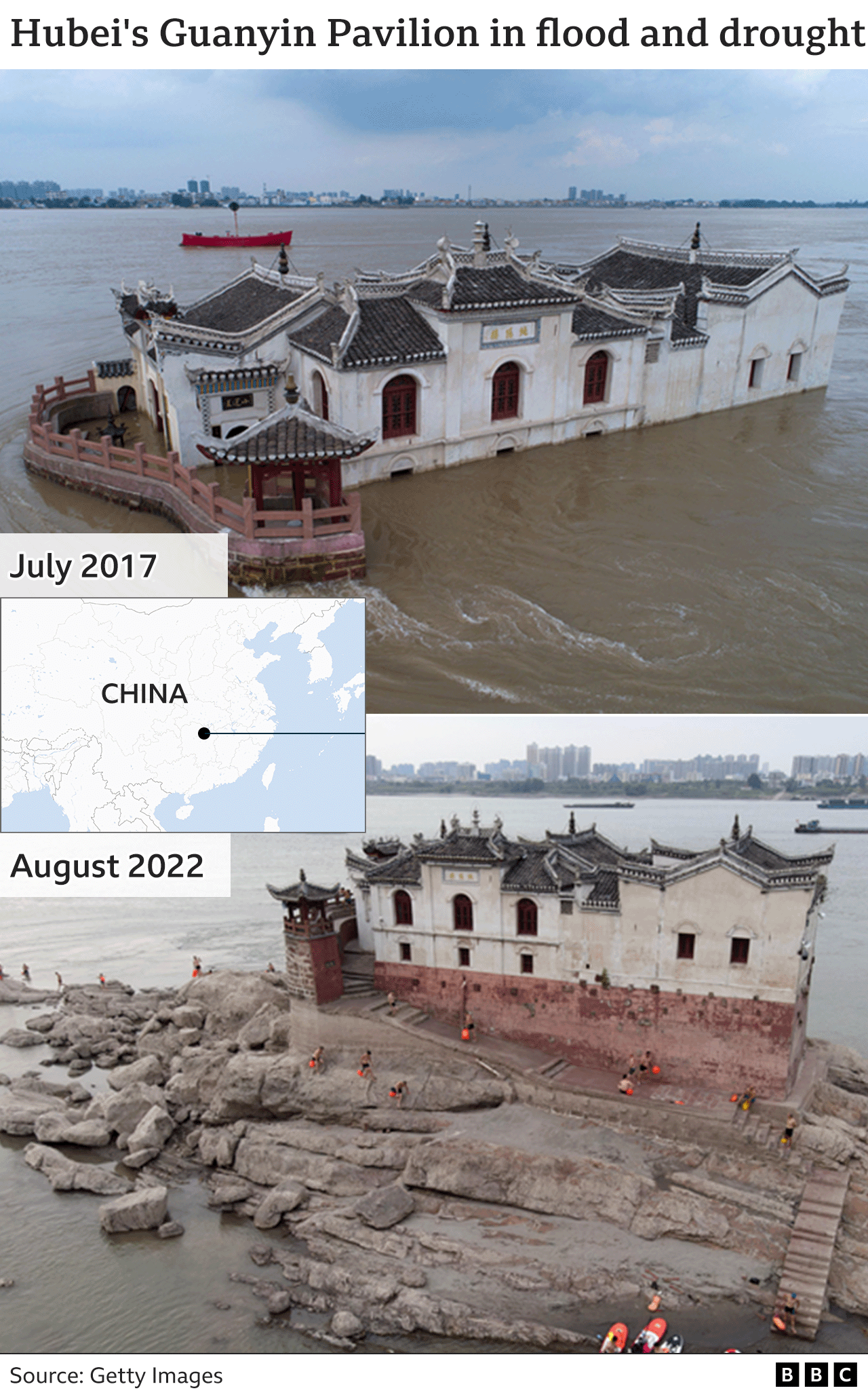
Low river levels have reduced the ability of hydro-electric power stations in the area to generate energy.
Emergency measures imposed to save electricity include factories closing, shops reducing opening hours and office buildings switching off air conditioning - all in response to the double-whammy of high demand for electricity and low production.
In big cities sited along the river, Shanghai is switching off its famous waterfront lights and the city of Luzhou is turning off street lights at night, in an attempt to ease pressure on the power grid.
Your device may not support this visualisation
Summer rainfall in the Yangtze river basin is the lowest since records began in 1961, according to China's Ministry of Water Resources.
Similarly, sustained regional heatwaves have also broken all established records, according to China's National Climate Centre.
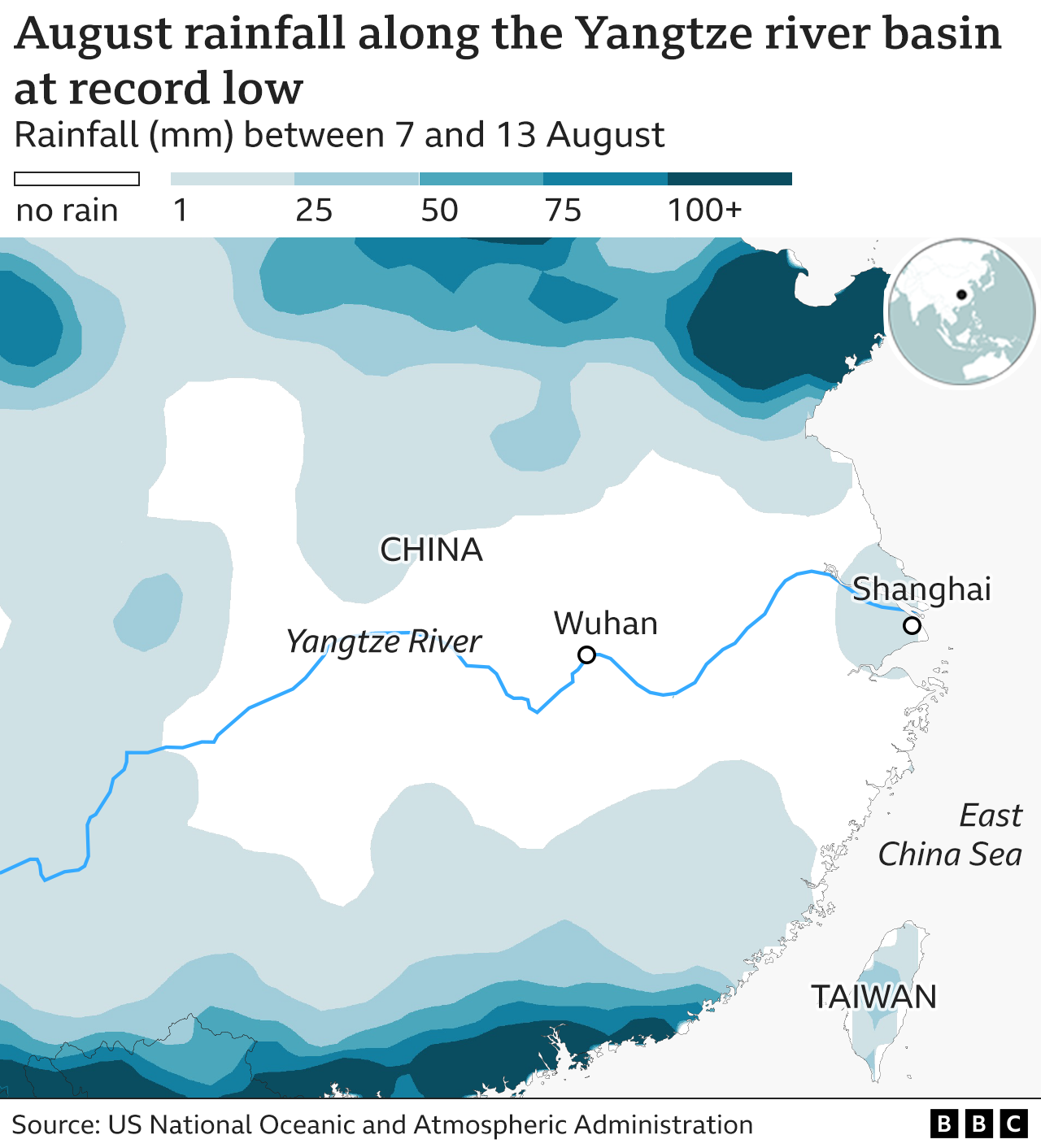
Temperatures peaked last week, with the National Meteorological Centre issuing its highest 'high temperature alert' for six consecutive days between 12-17 August.
Forest fires have broken out in the Sichuan province, with the Chongqing municipality being particularly badly affected.
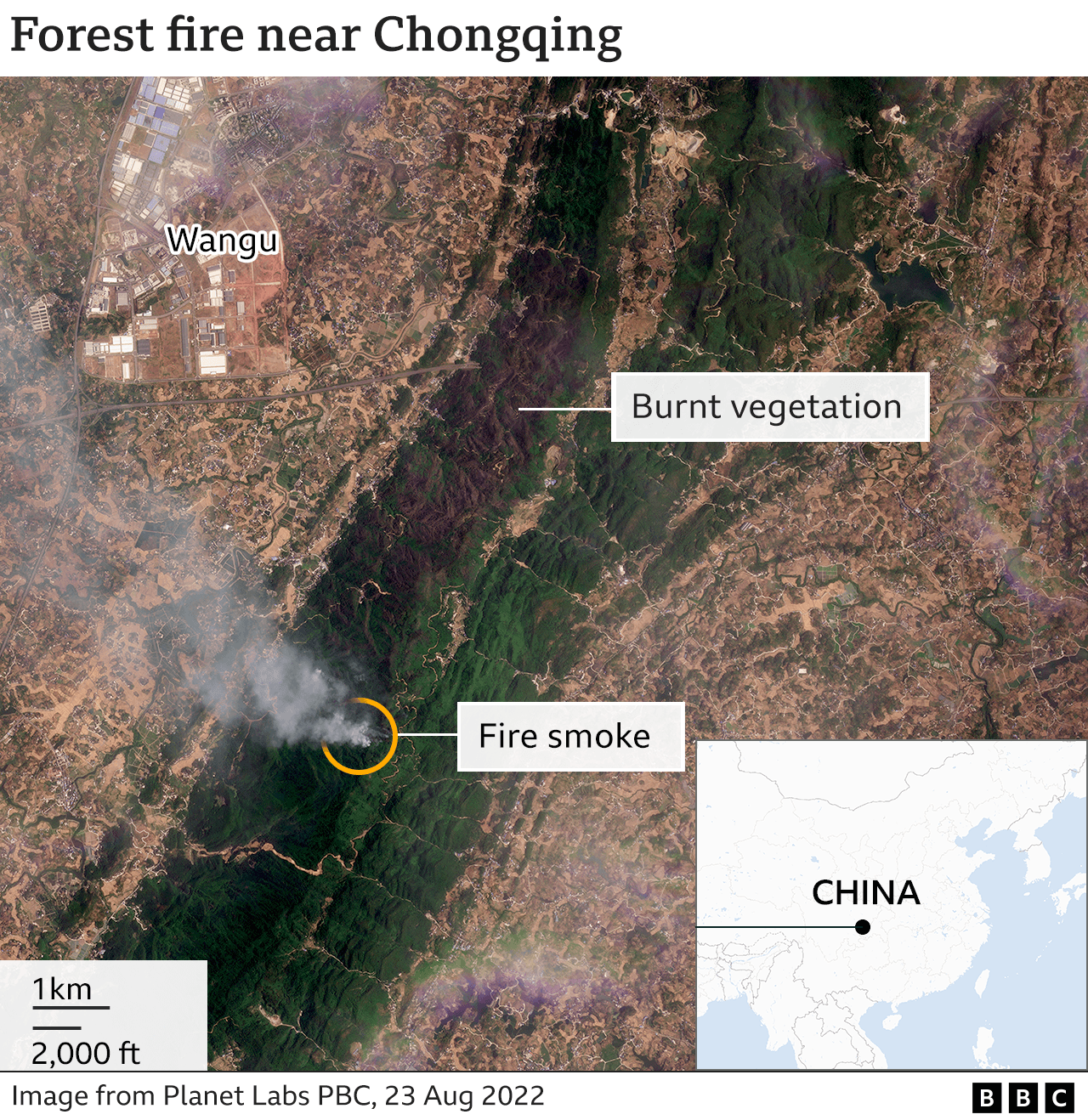
Other provinces along the Yangtze river basin are also on high alert for grassland and forest fires.
Last week, the region's Beibei district reached a new record temperature of 45 degrees.
Rivers and lakes dry up
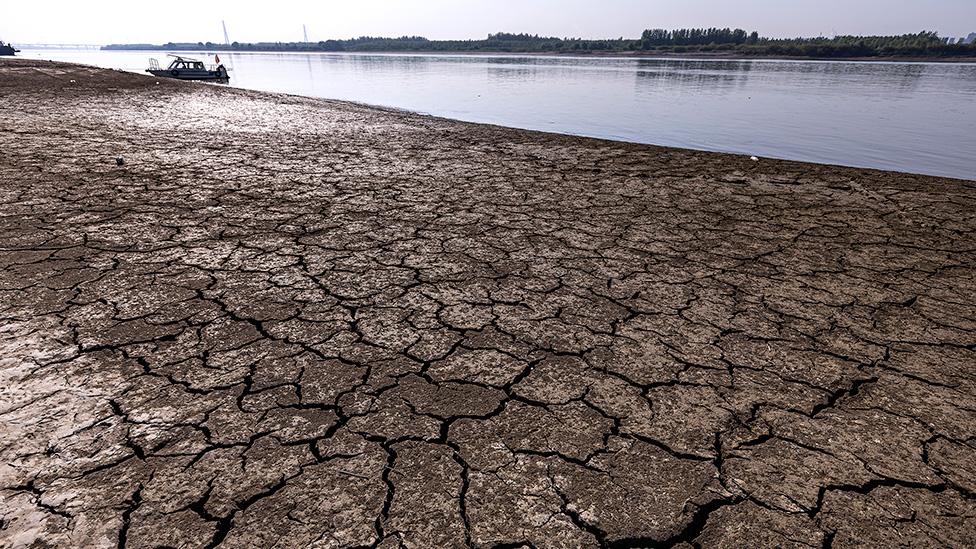
Lakes fed by the Yangtze, such as the Dongting Lake in Hunan province, have shrunk dramatically, in an area that is reliant on irrigation for farming.
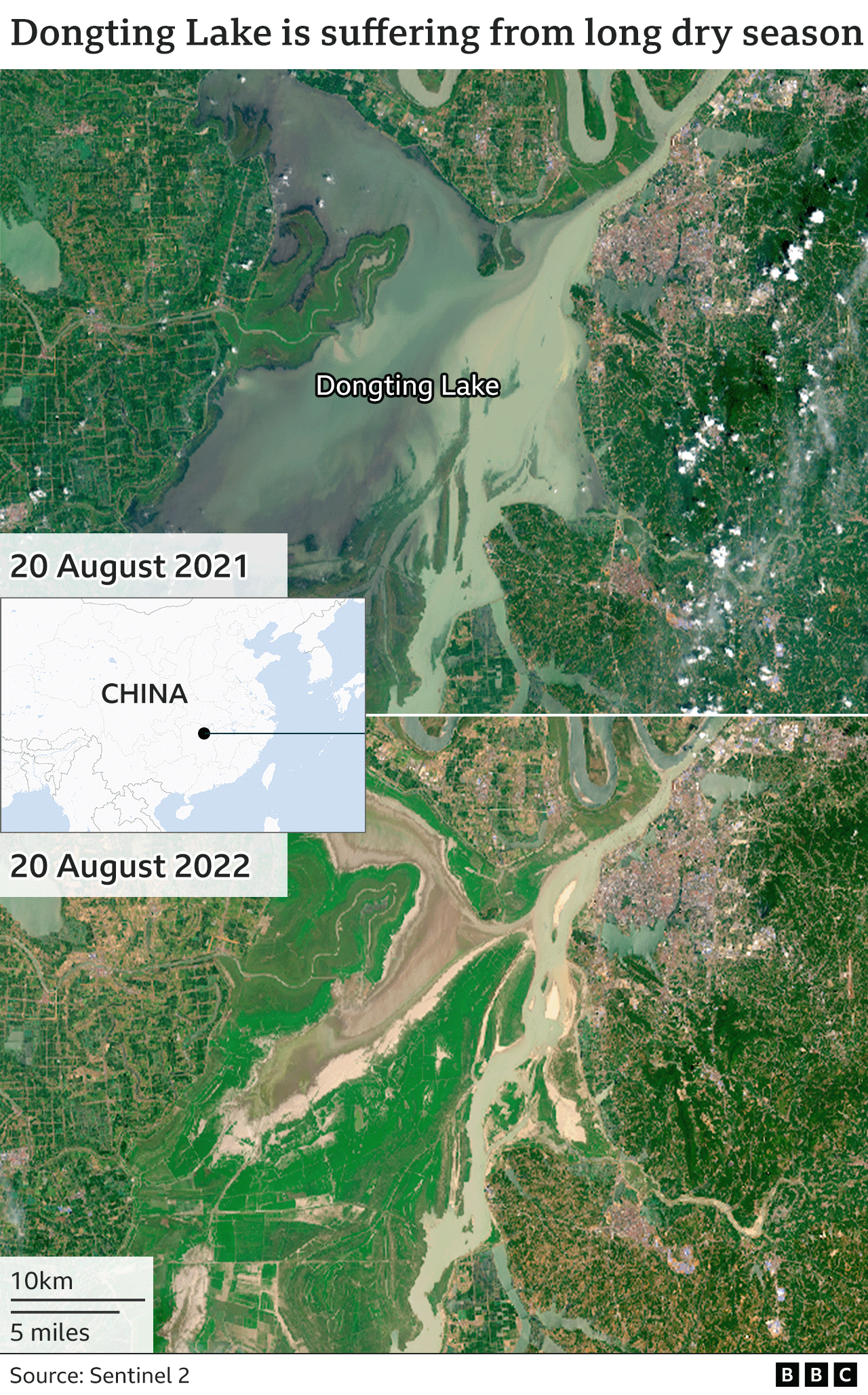
China's largest freshwater lake, Poyang Lake in Jiangxi province, has shrunk by about 75%. according to local authorities. Farmers around the lake here rely on its nutrient-rich water to irrigate their fields and crops.
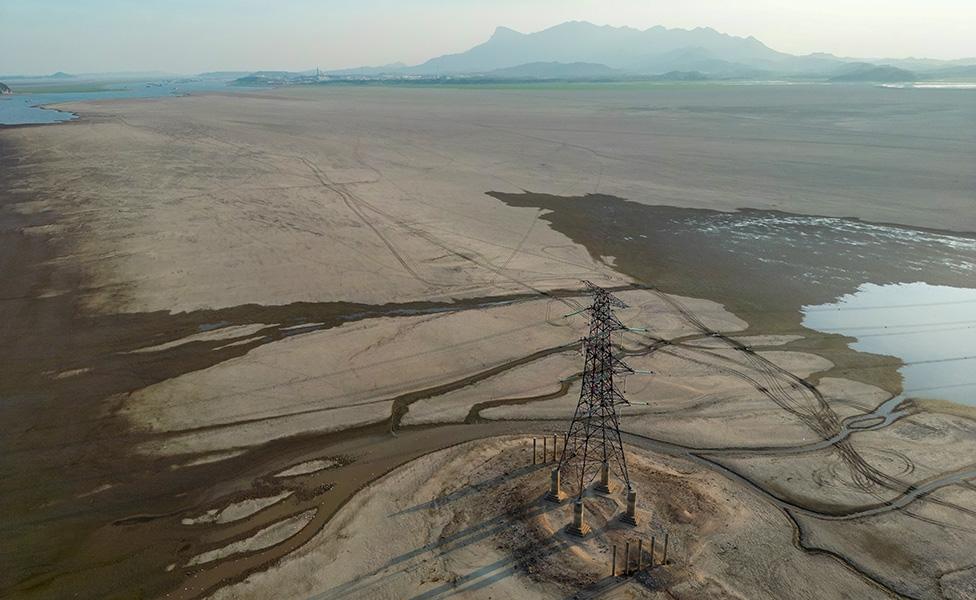
The low water level has also affected drinking water supplies in local communities, forcing the authorities to release water from the Three Gorges and Danjiangkou reservoirs to alleviate shortages, state broadcaster CCTV reports.
Across the region, the drought poses a threat to China's autumn crops, with thousands of acres' worth already lost in Sichuan province.
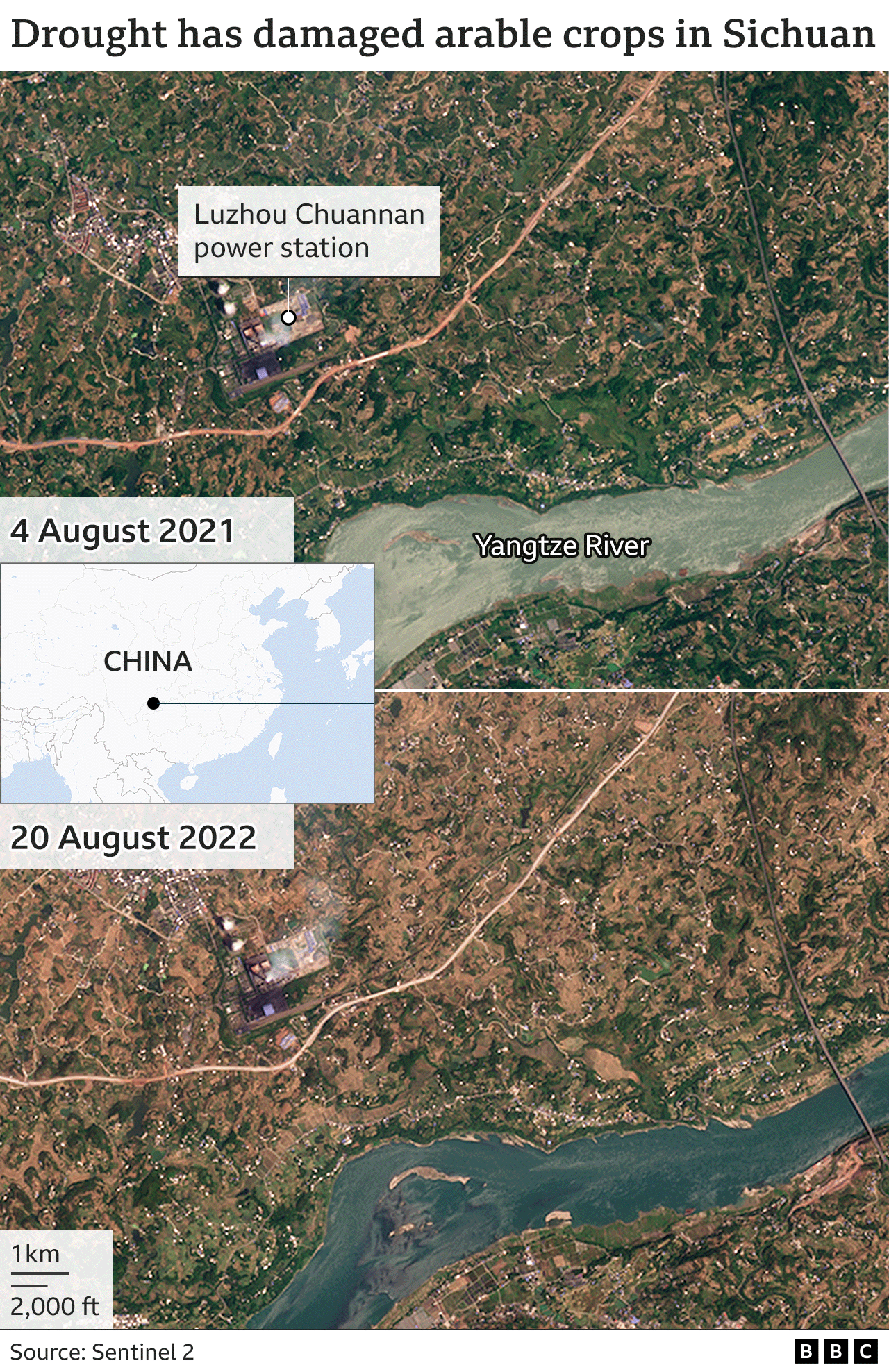
The extreme temperatures are forecast to continue until the end of August.
- Published22 August 2022

- Published17 August 2022
